Photo credits: Malcolm Ali/WireImage
Maulana Karenga (pictured) was born in Parsonsburg, Maryland, and moved to California in 1958 where he studied at Los Angeles City College (LACC) and UCLA.
At LACC, Karenga became involved in campus politics, was elected the first African American Study Body President, and was active in the civil rights, African independence, and peace movements. He also chaired the Los Angeles chapter of the Afro-American Association. Karenga transferred to UCLA, earning a B.A. (cum laude, 1963) and M.A. (1964) in political science with a specialization in African Studies.
After a year of working on his doctorate, he left UCLA to work in the Black Freedom Movement. At UCLA, he started to develop a philosophy of radical cultural and social change called Kawaida, which embraces some of the essential teachings of major activist intellectuals he studied. Those activists included Malcolm X, Marcus Garvey, Sékou Touré, Julius Nyerere, Kwame Nkrumah, Frantz Fanon, and Amílcar Cabral.
Karenga stressed revolution as both cultural and political, and argued that cultural revolution precedes and makes possible the political revolution, for it transforms consciousness and forges the commitment to struggle. In the context of the cultural and political transformation called “Back to Black”, Karenga changed his European name, “Ron Everett,” to an African name, Maulana Karenga, which means “master teacher” and “keeper of the tradition” respectively.
In 1965, after the Watts Revolt, Karenga created the organization, Us, (us African people), and structured it as a cultural and social change organization, with a paramilitary unit called Simba Wachanga (The Young Lions). Us engaged in programs of political and cultural education, organizing, institution-building and social service.
Using his expansive knowledge of African culture and languages, Karenga, in 1965, also developed the Nguzo Saba (The Seven Principles), as a key value system for Black life and struggle, and in 1966, created the African American and pan-African holiday, Kwanzaa, a seven-day holiday (26 December—1 January) which celebrates family, community and culture. Karenga and Us have also played a major role in Black intellectual and political culture since the 1960.
His work in those circles includes being in the Movements of Black Power, Black Arts, Black Studies, Black Students, ancient Egyptian studies, reparations, and the Million Man March/Day of Absence, for which Karenga wrote the Mission Statement.
After going through what he called his “political imprisonment,” Karenga returned to his doctorate studies and earned one Ph.D. in political science at United States International University (1976) and another in social ethics at the University of Southern California (1994). He currently is professor and former chair (13 years) of Africana Studies at California State University, Long Beach. He remains an activist-scholar, chairing Us and the National Association of Kawaida Organizations.
Karenga also serves as executive director of the Kawaida Institute of Pan-African Studies and the African American Cultural Center in Los Angeles, California (Karenga, 2007).
Reference: Karenga, T. (2007, February 12) Maulana Karenga (1941- ). Retrieved from https://www.blackpast.org/african-american-history/karenga-maulana-c-1943/
Research sources: Molefi Kete Asante, Maulana Karenga: An Intellectual Portrait (Malden, MA; Polity Press, 2009); Maulana Karenga: UCLA Center for African American Studies Oral History Transcript, 1996-1998 / interviewed by Elston L Carr, Los Angeles, CA: Oral History Program, University of California, Los Angeles, 2002; Maulana Karenga, Kawaida and Questions of Life and Struggle (Los Angeles, CA: University of Sankore Press, 2008).
*BlackThen.com writer/historian Victor Trammell edited and contributed to this report.

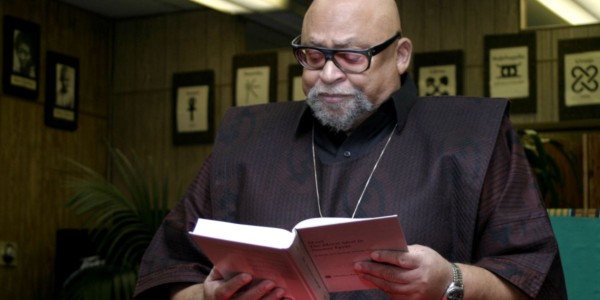



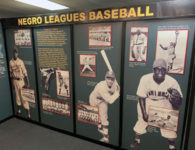

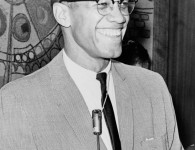
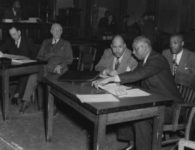
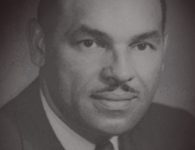
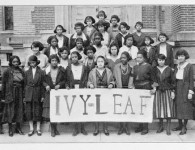
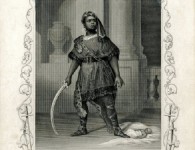
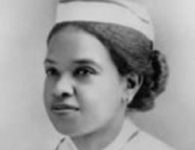
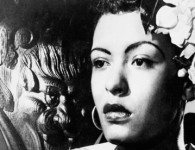
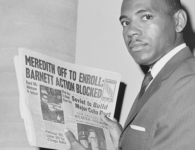
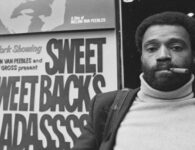
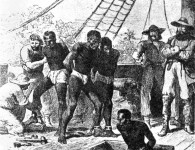
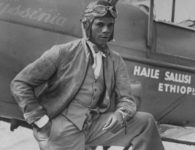
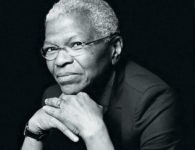

2 Comments
Every time I hear his name, I think of Little Bobby Hutton, the first Black Panther to be murdered. I think of his involvement in it.
Willard Johnson was the first African American student body president. We elected him in 1956.
Bennett Johnson